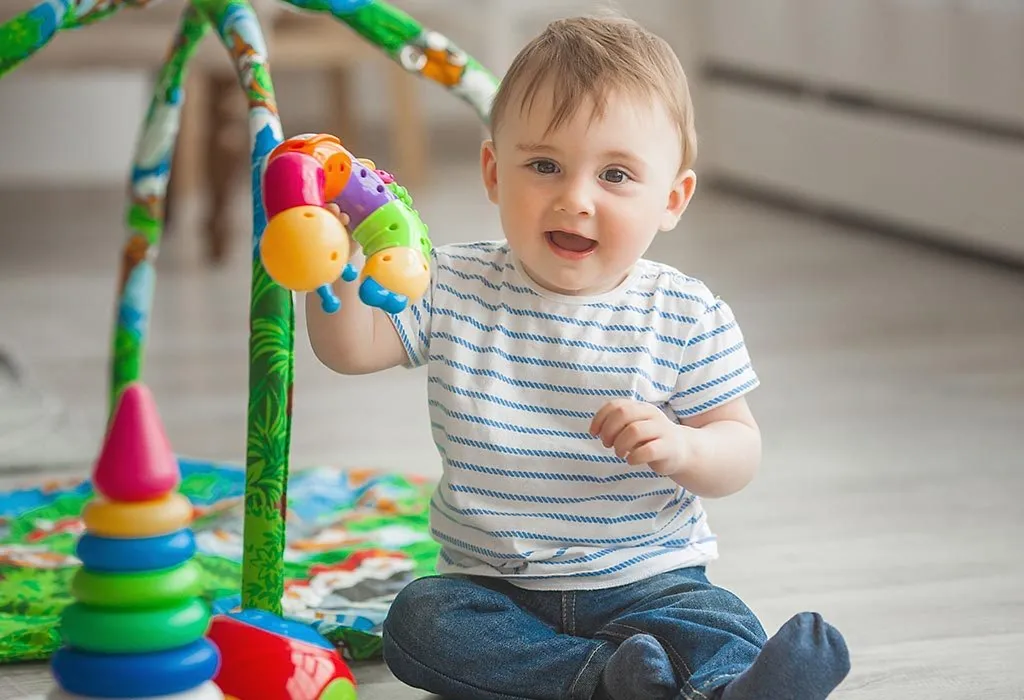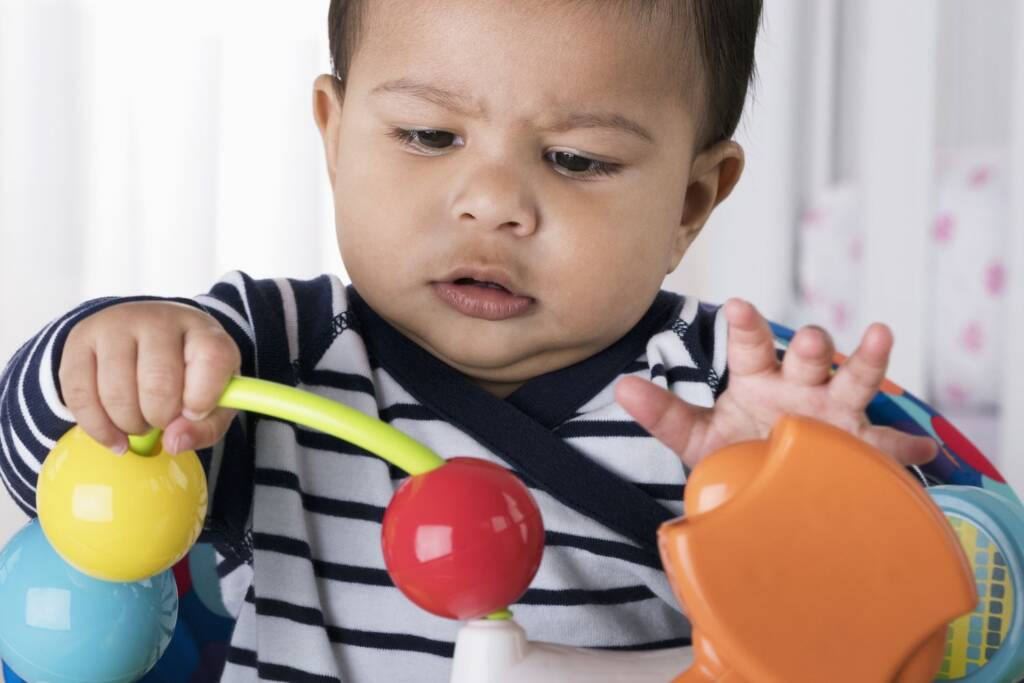Understanding Motor Skills Development
Motor skills are essential for a baby’s overall growth and independence. These skills are categorized into gross motor skills, which involve larger movements like crawling and walking, and fine motor skills, which involve smaller movements like grasping and manipulating objects. Understanding the stages of motor development and how to encourage these skills can significantly impact a child’s physical and cognitive growth.
Stages of Motor Skills Development
Motor skills development follows a predictable pattern, although the exact age at which each milestone is achieved can vary. These milestones serve as guidelines for what parents can expect as their baby grows. Early milestones include reflexes and head control, while later stages involve more complex movements like crawling, standing, and walking. Recognizing and supporting these stages is crucial for fostering healthy development.

Early Motor Skills
Newborn Reflexes
Newborn reflexes are automatic movements that disappear as the baby matures. These reflexes, such as the Moro reflex (startle), rooting reflex (turning the head toward a touch), and grasp reflex (holding onto objects), are essential for survival and provide the foundation for voluntary movements. Parents can encourage these reflexes by gently stimulating their baby’s senses through touch and movement.
Tummy Time
Tummy time is critical for developing a baby’s neck, shoulder, and arm muscles. It also helps prevent flat spots on the back of the head. Starting tummy time early and gradually increasing its duration can help babies build the strength they need for future milestones like rolling over and crawling. Engaging the baby with toys and interaction during tummy time can make it a more enjoyable experience.
Gross Motor Skills
Head Control
Developing head control is one of the first major milestones in a baby’s motor development. Around 2 to 3 months, babies start to lift and hold their heads up during tummy time. Parents can support this by providing ample tummy time and gently pulling the baby to a sitting position while supporting the head and neck.
Rolling Over
Rolling over is a significant milestone that typically occurs between 4 to 6 months. This skill indicates that the baby is developing the strength and coordination needed for more advanced movements. Encouraging rolling over can involve placing toys just out of reach or gently guiding the baby’s movements during playtime.
Sitting Up
By 6 to 8 months, many babies begin to sit up with support and eventually on their own. This milestone requires strong back, neck, and arm muscles. Parents can help by providing supportive seating options and engaging the baby in activities that require reaching and balance.
Crawling
Crawling usually starts between 7 to 10 months and is crucial for developing coordination and muscle strength. Different crawling styles, such as the classic crawl, scooting, or bear crawl, are all normal. Encouraging crawling can include setting up a safe play area with interesting toys and objects to explore.
Standing and Cruising
Standing and cruising along furniture typically occur between 9 to 12 months. These activities help develop balance and leg strength. Parents can support this stage by providing sturdy furniture and encouraging the baby to pull up and move along surfaces.
Walking
Most babies take their first steps between 12 to 15 months. Walking is a major milestone that signifies increased independence. Parents can encourage walking by offering support, such as holding the baby’s hands or using push toys. Creating a safe environment for exploration is also crucial.
Fine Motor Skills
Grasping and Reaching
The development of hand-eye coordination begins with grasping and reaching for objects. By 3 to 4 months, babies start to reach for and grasp toys. Providing a variety of textures and shapes can stimulate these skills.
Hand and Finger Strength
Building hand and finger strength is essential for tasks like feeding and dressing. Activities like squeezing soft toys, finger painting, and playing with building blocks can enhance fine motor skills.
Pincer Grasp
The pincer grasp, using the thumb and forefinger to pick up small objects, typically develops around 9 to 12 months. Encouraging this skill can involve offering small, safe objects to pick up and play with, such as pieces of food or small toys.
Hand Preference
While true hand dominance may not be established until later, observing and encouraging the use of both hands can help develop fine motor skills. Offering toys and activities that require the use of both hands can support this development.
Sensory Motor Skills
Vision and Motor Skills
Visual development is closely linked to motor skills. Activities that enhance visual-motor coordination include tracking moving objects, playing with toys that have contrasting colors, and encouraging reaching and grasping.
Auditory and Motor Skills
Hearing also impacts motor development. Sound-based activities, such as playing with musical toys or responding to the baby’s babbling, can promote auditory and motor skills.
Tactile Sensations
Touch is vital for motor development. Sensory play with different textures, such as sand, water, and soft fabrics, can stimulate tactile sensations and encourage exploration and movement.
Encouraging Movement
Creating a Safe Environment
A safe environment is essential for encouraging movement. Baby-proofing the home by securing furniture, covering sharp edges, and keeping hazardous items out of reach can allow the baby to explore freely. Setting up a motor-friendly play space with soft mats and engaging toys can promote active play.
Using Toys and Tools
Toys that encourage motor skills development include stacking blocks, shape sorters, and push-and-pull toys. DIY tools, such as homemade sensory bins or simple obstacle courses, can also be effective.
Incorporating Movement into Daily Routine
Incorporating movement into daily routines can be as simple as encouraging the baby to reach for toys during diaper changes, involving them in household chores, or creating playful movement activities like dancing or playing peek-a-boo.
Parental Involvement
Role of Parents in Motor Development
Parents play a crucial role in their baby’s motor development. Active involvement, such as playing, guiding, and encouraging, helps the baby feel supported and motivated to explore new movements.
Observing and Responding to Cues
Recognizing signs of readiness for new skills and responding to the baby’s cues can support their development. Observing the baby’s interests and providing appropriate challenges can help them progress at their own pace.
Positive Reinforcement
Positive reinforcement, such as clapping, cheering, and offering praise, can motivate the baby to practice new skills. Celebrating small achievements helps build the baby’s confidence and encourages further exploration.
Special Considerations
Identifying Developmental Delays
It’s important to be aware of signs of potential motor delays, such as missing key milestones or asymmetrical movements. Early intervention and consulting with a pediatrician can provide the necessary support.
Supporting Babies with Special Needs
For babies with special needs, adapting activities and providing appropriate support can help them develop motor skills. Consulting with professionals and accessing resources can offer guidance tailored to the baby’s unique needs.
Cultural and Environmental Influences
Cultural and environmental factors can impact motor development. Understanding and adapting strategies to fit different cultural practices and environments can support the baby’s growth in a way that aligns with family values and circumstances.

Resources and Tools
Books and Guides for Parents
There are numerous books and guides available that provide insights into motor development. Recommended reading can offer practical tips and reassurance for parents.
Online Resources and Communities
Online resources, such as websites, forums, and support groups, can provide valuable information and a sense of community. Parents can share experiences and gain support from others in similar situations.
Professional Support
When in doubt, consulting with pediatricians, physical therapists, or other professionals can provide expert guidance. Finding local resources, such as developmental clinics or early intervention programs, can offer additional support.









